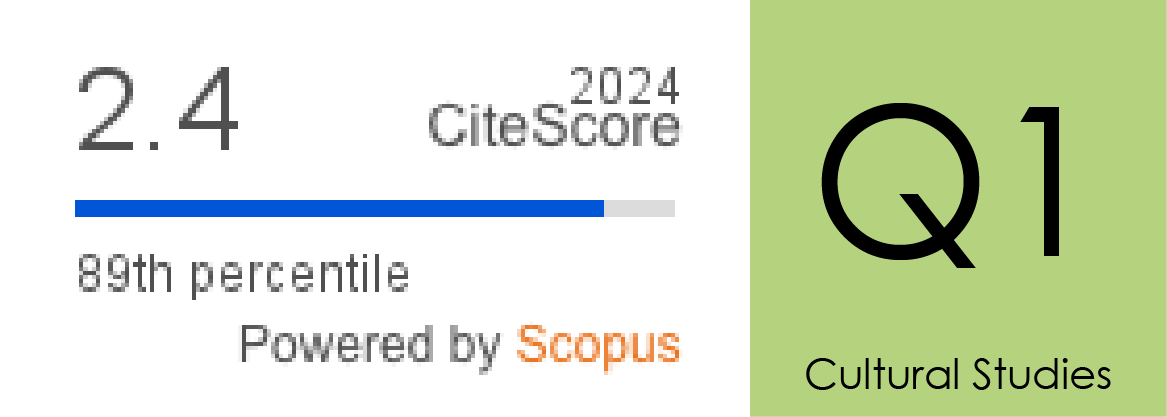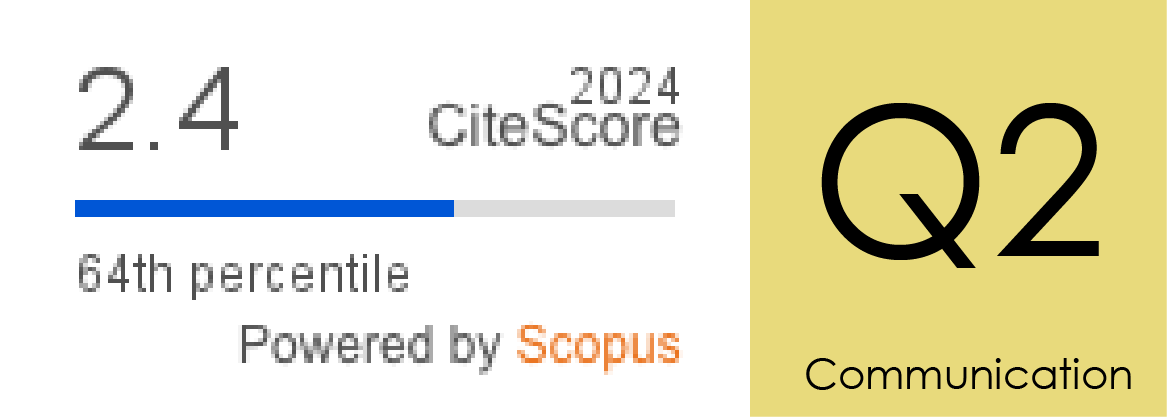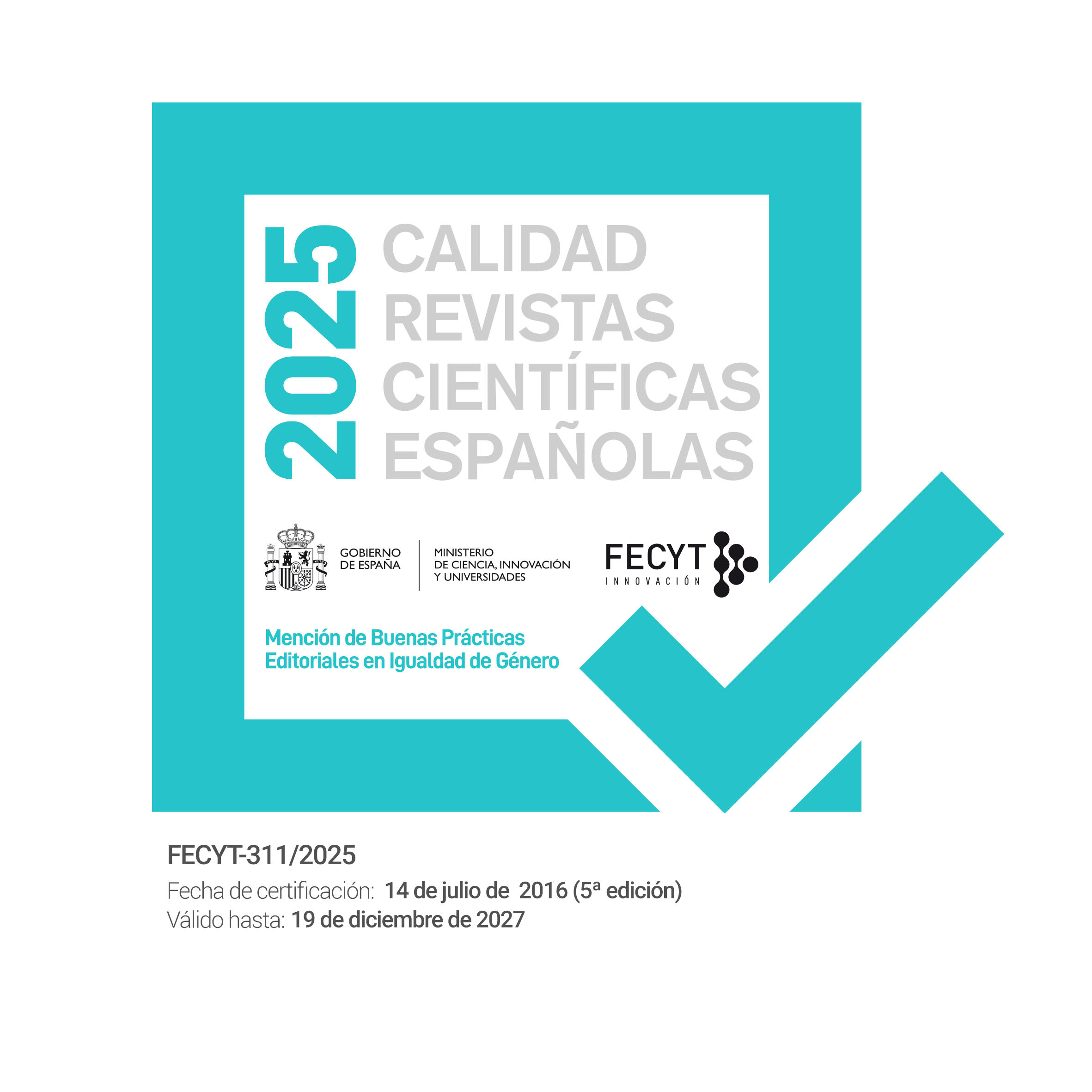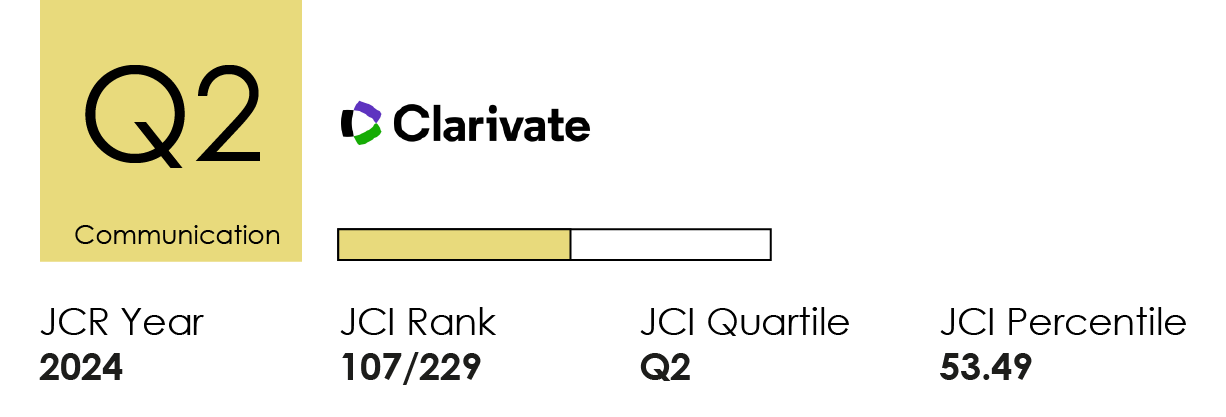George Floyd y la formación transnacional de memoria democrática en redes sociales: Un informe desde el norte de Europa
DOI:
https://doi.org/10.14198/MEDCOM.21834Palabras clave:
derecha política, memoria cosmopolita, contramemoria, métodos mixtos, raza, redesResumen
A medida que las redes digitales personalizadas han crecido en relevancia cultural y política, la necesidad de comprender su papel en la formación de la memoria democrática se ha vuelto más urgente. Además, los académicos han sugerido que en una era de globalización y digitalización, la memoria colectiva podría extenderse a públicos transnacionales. Este estudio tiene como objetivo avanzar en la comprensión de la memoria en las redes sociales globales al investigar la forma en que los usuarios de Twitter fuera de los Estados Unidos trataron y entendieron la muerte de George Floyd en el verano de 2020. Usando una combinación de big data y entrevistas cualitativas contemporáneas con usuarios en Noruega, Suecia y Dinamarca, el artículo trae el concepto de memoria cosmopolita a la era de las redes sociales. El estudio encuentra que los usuarios fusionaron el evento y sus consecuencias con observaciones de injusticia en sus propios países. Sin embargo, este proceso funcionó de manera diferente entre los usuarios de diferentes puntos de vista ideológicos. Otro hallazgo clave es que los usuarios de la derecha radical resintieron la aceptación del evento como una memoria cosmopolita y emplearon técnicasFinanciación
University of OsloCitas
American Historical Association (AHA). (27/08/2017). Statement on Confederate monuments. https://bit.ly/3xHVcqK
Banks, C. (2018). Disciplining black activism: Post-racial rhetoric, public memory and decorum in news media framing of the Black Lives Matter movement. Continuum, 32(6), 709-720. https://doi.org/10.1080/10304312.2018.1525920
Birkner, T., & Donk, A. (2020). Collective memory and social media: Fostering a new historical consciousness in the digital age? Memory Studies, 13(4), 367-383. https://doi.org/10.1177/1750698017750012
Blasco-Duatis, M., & Coenders, G. (2020). Sentiment analysis of the agenda of the Spanish political parties on Twitter during the 2018 motion of no confidence. A compositional data approach. Mediterranean Journal of Communication, 11(2), 185-198. https://doi.org/10.14198/medcom2020.11.2.22
Borra, E., & Rieder, B. (2014). Programmed method: Developing a toolset for capturing and analyzing tweets. Aslib Journal of Information Management, 66(3), 262-278. https://doi.org/10.1108/AJIM-09-2013-0094
Brendese, P. J. (2014). The power of memory in democratic politics. Boydell & Brewer.
Bruns, A., & Enli, G. (2018). The Norwegian Twittersphere: Structure and dynamics. Nordicom Review, 39(1), 129-148. https://doi.org/10.2478/nor-2018-0006
El País. (08/06/2020). Fotos: Las manifestaciones por la muerte de George Floyd alrededor del mundo, en imágenes. El País. https://bit.ly/3EuKqW9
Eriksson, M. (2015). Managing collective trauma on social media: The role of Twitter after the 2011 Norway attacks. Media, Culture & Society, 38(3), 365-380. https://doi.org/10.1177/0163443715608259
Foucault, M. (1977). Language, counter-memory, practice: Selected essays and interviews by Michel Foucault. Cornell University Press.
Garde-Hansen, J. (2011). Media and memory. Edinburgh University Press.
Guerrero-Solé, F., Pujadas, E., Aira, T., & Mas-Manchón, L. (2022). Politicized celebrities against far-right on Twitter: Political preferences and activity of users retweeting Rosalia’s anti Vox tweet after the 2019 general elections in Spain. Mediterranean Journal of Communication, 13(2). https://doi.org/10.14198/medcom.19953
Hagesæther, P. V., Johansen, R. V., & Bjørge, S. J. (31/12/2021). Den nye vekkelsen. Aftenposten: A-Magasinet. https://bit.ly/387wS6y
Halbwachs, M. (1992 [1952]). On collective memory. University of Chicago press.
Heersmink, R. (2021). Materialised identities: Cultural identity, collective memory, and artifacts. Review of Philosophy and Psychology, 1-17. https://doi.org/10.1007/s13164-021-00570-5
Kvale, S. (1996). Interviews: An introduction to qualitative research interviewing. Sage Publications.
Larsson, A. O., & Moe, H. (2014). Twitter in politics and elections: Insights from Scandinavia. In K. Weller, A. Bruns, J. Burgess, M. Mahrt, & C. Puschmann (Eds.), Twitter and society (pp. 319-330). Peter Lang.
Levy, D., & Sznaider, N. (2002). Memory unbound: The holocaust and the formation of cosmopolitan memory. European Journal of Social Theory, 5(1), 87-106. https://doi.org/10.1177/1368431002005001002
Lundby, K., & Repstad, P. (2018). Scandinavia: Emerging cultural tensions. In K. Lundby (Ed.), Contesting religion: The media dynamics of cultural conflicts in Scandinavia (pp. 13-31). De Gruyter.
Medina, J. (2011). Toward a Foucauldian epistemology of resistance: Counter-memory, epistemic friction, and guerrilla pluralism. Foucault Studies, 12, 9-35. https://doi.org/10.22439/fs.v0i12.3335
Mendes, A. C. (2021). From “crisis” to imagination: Putting white heroes under erasure post-George Floyd. Cultural Studies ↔ Critical Methodologies, 21(5), 394-400. https://doi.org/10.1177/15327086211028677
Migrationsverket. (10/09/2020). Migration to Sweden: History. Swedish Migration Agency. https://bit.ly/3xHMyYX
Misztal, B. A. (2005). Memory and democracy. American Behavioral Scientist, 48(10), 1320-1338. https://doi.org/10.1177/0002764205277011
Moe, H., Ytre-Arne, B., & Nærland, T. U. (2019). Between ritual and information: Three phases of Norwegian news audiences’ sense-making of the election of Donald Trump. Journalism, 22(11), 2764-2780. https://doi.org/10.1177/1464884919883103
Molden, B. (2016). Resistant pasts versus mnemonic hegemony: On the power relations of collective memory. Memory Studies, 9(2), 125-142. https://doi.org/10.1177/1750698015596014
Neiger, M., Meyers, O., & Zandberg, E. (2011). On media memory: Editors’ introduction. In M. Neiger, O. Meyers, & E. Zandberg (Eds.), On media memory: Collective memory in a new media age (pp. 1-24). Springer.
Newman, N., Fletcher, R., Schulz, A., Andı, S., Robertson, C. T., & Nielsen, R. K. (2021). Reuters Institute digital news report 2021. Reuters Institute. https://bit.ly/3EyJuQD
Octobre, S. (2020). Aesthetico-cultural cosmopolitanism. In V. Cicchelli & S. Mesure (Eds.), Cosmopolitanism in hard times (pp. 276-288). Brill. https://doi.org/10.1163/9789004438026_021
Orbegozo-Terradillos, J., Morales-i-Gras, J., & Larrondo-Ureta, A. (2020). Misinformation in social networks: Closed or dialectical spaces? The case for Luther King, Quim Torra and El Confidencial. Mediterranean Journal of Communication, 11(2), 55-69. https://doi.org/https://doi.org/10.14198/MEDCOM2020.11.2.2
Reading, A. (2011). Memory and digital media: Six dynamics of the globital memory field. In M. Neiger, O. Meyers, & E. Zandberg (Eds.), On media memory (pp. 241-252). https://doi.org/10.1057/9780230307070_18
Ryan, L. (2014). Cosmopolitan memory and national memory conflicts: On the dynamics of their interaction. Journal of Sociology, 50(4), 501-514. https://doi.org/10.1177/1440783312467097
Saad, L. (21/05/2021). Heightened racial concern a clear legacy of Floyd's death. Gallup. https://bit.ly/3vwuiPQ
Saito, H. (2020). Unpacking cosmopolitan memory. In V. Cicchelli, & S. Mesure (Eds.), Cosmopolitanism in hard times (pp. 221-232). Brill. https://doi.org/10.1163/9789004438026_017
Sánchez-Castillo, S., & López-Olano, C. (2021). Vetting and verifying multimodal false information: A challenge for democratic societies. Anàlisi, 64, 1-7. https://doi.org/https://doi.org/10.5565/rev/analisi.3461
Schnakenbourg, É. (2020). Scandinavians and the Atlantic slave trade. Encyclopédie d'histoire numérique de l'Europe. https://bit.ly/3rI8ZK5
Syvertsen, T., Enli, G., Mjøs, O. J., & Moe, H. (2014). The media welfare state: Nordic media in the digital era. University of Michigan Press. https://bit.ly/3xItiuG
Tello, V. (2022). Counter-memory and and–and: Aesthetics and temporalities for living together. Memory Studies, 15(2), 390-401. https://doi.org/10.1177/1750698019876002
Volkmer, I., & Deffner, F. (2010). Eventspheres as discursive forms: (re-)negotiating the “mediated center” in new network cultures. In N. Couldry, A. Hepp, & F. Krotz (Eds.), Media events in a global age (pp. 217-230). Routledge.
Wixe, S., & Ek, T. (09/09/2018). This is what’s happened in Sweden last night. Aftonbladet. https://bit.ly/3vwvh2u
Descargas
Estadísticas
Publicado
Cómo citar
Número
Sección
Licencia
Derechos de autor 2022 Jessica Yarin Robinson

Esta obra está bajo una licencia internacional Creative Commons Atribución 4.0.
Los autores y autoras que publican en esta revista están de acuerdo con los siguientes términos:
1 Derechos de autor. Los autores y autoras conservan sus derechos de autor, aunque ceden a la revista de forma no exclusiva los derechos de explotación (reproducción, distribución, comunicación pública y transformación) y garantizan a esta el derecho de primera publicación de su trabajo, el cual estará simultáneamente sujeto a la licencia indicada en punto 2. Los autores pueden establecer otros acuerdos adicionales para la distribución no exclusiva de la versión de la obra publicada en la revista, siempre que exista un reconocimiento de su publicación inicial en esta revista.
© Los autores.
2 Licencia. Los trabajos se publican en la revista sujetos a la licencia de Reconocimiento 4.0 Internacional de Creative Commons (CC BY 4.0); los términos se pueden consultar en https://creativecommons.org/licenses/by/4.0/
Esta licencia permite a terceros compartir (copiar y redistribuir el material en cualquier medio o formato) y adaptar (remezclar, transformar y crear a partir del material para cualquier finalidad, incluso comercial), siempre que se reconozca la autoría y la primera publicación en esta revista (Revista Mediterránea de Comunicación (RMC) / Mediterranean Journal of Communication (MJC), Universidad de Alicante, DOI de la obra), se proporcione un enlace a la licencia y se indique si se han realizado cambios en la obra.
3 Política de autoarchivo. Se recomienda a los autores que difundan sus trabajos a través de Internet para favorecer una circulación y difusión más rápidas y, con ello, un posible aumento en la citación y alcance entre la comunidad científica y académica, en las siguientes condiciones:
No se permite a los autores depositar en un repositorio institucional o temático, página web propia, etc., las versiones preprint (versión antes de ser evaluada) o postprint (versión evaluada y aceptada para su publicación) de sus trabajos antes de su publicación, pero sí el artículo final publicado (versión del editor).














